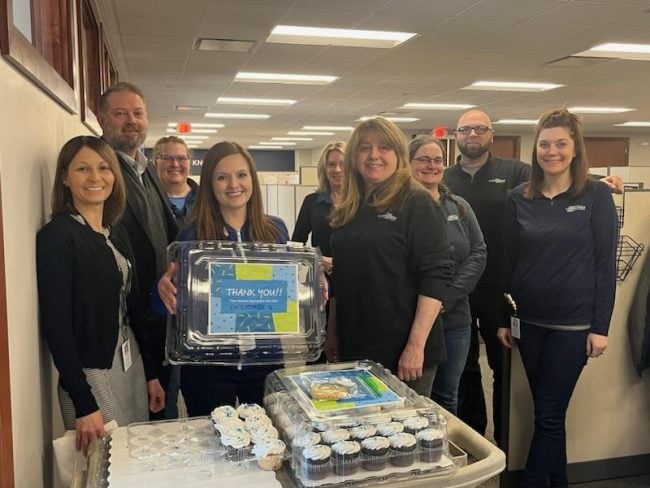 As I was saying …
As I was saying …
Recently, I offered some suggested New Year's Resolutions forcredit union CEOs, and separately, for members of credit unionboards.
|Reaction was immediate, and for the most part, very positive. SoI thought it might prove interesting to move up a notch and puttogether a checklist for national credit union organizationleaders.
|After talking to a large number of credit union colleagues,several national organization senior staff, and several of theleaders themselves, I drew on my own twenty plus years ofinvolvement at the national level.
|All this to come up with a checklist of advice, knowing fullwell it wasn't asked for in the first place. It probably will beignored most by the very people we observers all have in mind;those who could best benefit themselves and their organizations byadmitting we're really talking about them.
|So, wanted or not, ready or not, here goes…
|1) Lead, don't follow. Lead, don'tmanage. Lead, don't politicize. Lead by taking a stand. Lead, bymaking decisions. Lead by speaking up on important issues; silenceis not golden here. Lead because you're in a leadership positionand your members expect it from you.
|2) Become a better communicator. Knowwhen to write; when to call; when to speak. When to call a meeting.Make open, regular, timely, effective, straightforwardcommunication a top priority for everyone even remotely involvedwith the organization. Are you getting through? Or merely producingpaper for your own amusement with little if any value to themembership? Find out. Ask! Test! Measure!
|3) Stay in touch with the membership ofyour organization. Never forget, it's not your organization. Itbelongs to the members. Find out what's on their minds. What theyexpect from the organization. Don't guess what they want. Don'tmake the common mistake of thinking as a national leader youautomatically know what's best for them. Don't get trapped in theIvory Tower. It's already too crowded.
|4) Never forget, no organization, or itsleaders is indispensable. There's a pretty good chance that most ofwhat any national credit union organization provides, can beobtained somewhere else. Perhaps at a better price and maybe evenwith improved quality. As a national level elected leader, I needto be reminded of a sobering thought: our organization has noGod-given right to exist forever. In every industry, includingcredit unions, long time national groups are losing members andinfluence, dying, or disappearing altogether. Many became sobloated with self-importance, they exploded into oblivion. Andimmediately another organization, more in tune with member needsand budgets, was ready to fill the void.
|5) Don't lose sight of the fact that thepurpose of non-profit organizations is not to make money on everyproject or activity, but to effectively serve the membership'schanging and growing needs. That's what “non-profit” means. That'swhat's behind the tax exemption. Just ask the IRS. Before you loseit.
||6) Try and be as flexible as possible.Be willing to change directions as member needs change. Recommendan independent member survey. Suggest focus groups. Travel into thehinterlands and talk, better yet, listen, to the grassrootsmembership.
|7) Remember that national organizationswere not created to serve the needs of its elected leadership. Thereverse is true. National leadership positions were created toattract individuals dedicated to serve the members. Electedleadership positions provide that opportunity in spades.
|8) Stay in touch with your membership;they're paying the freight, including your travel and meetingexpenses. They have a right to ask what they are getting for theirmoney. And they will ask. Especially if you raise the dues again.So tell them, before they ask. Higher board expenses is not a goodanswer
|9) Set an example of fiscalresponsibility by not ordering the finest wine in the gourmetrestaurants you've come to take for granted. Try Joe's Deli justonce. It won't kill you, and your waistline will appreciate ittoo!
|10)Establish a personal and organizational goal of identifying,understanding, and concentrating on no more than six priorityissues at any one time. Don't meddle in staff work. Do fewerthings. Only the most important projects. But do them extremelywell.
|11)Be determined to stay on the printed agenda. To support thechairman. And the staff. And to at least think of the organizationon occasion between formal meetings. And to read the carefullyprepared board materials before, not during the meetings. Askyourself two questions throughout the meeting: “Is this a policymatter?” “Are we doing staff or committee work at the boardlevel?”
|12)Although competent and dedicated elected leadership isextremely important to the forward progress of the organization,admit that the CEO and paid staff are the glue that hold it alltogether. They provide the continuity. It's their full time jobs.Their careers. They want to make you look good. And help get youre-elected. Let them do their job, while you do yours.
|13)Finally, never, ever, do anything that causes the CEO to loseconfidence in the board. (It really does work both ways). It'sprecisely that happening that has sent some of the best CEOs insearch of greener pastures.
|Mike Welch launched Credit Union Times in 1990 and served aspublisher until his retirement in 2005.
Complete your profile to continue reading and get FREE access to CUTimes.com, part of your ALM digital membership.
Your access to unlimited CUTimes.com content isn’t changing.
Once you are an ALM digital member, you’ll receive:
- Critical CUTimes.com information including comprehensive product and service provider listings via the Marketplace Directory, CU Careers, resources from industry leaders, webcasts, and breaking news, analysis and more with our informative Newsletters.
- Exclusive discounts on ALM and CU Times events.
- Access to other award-winning ALM websites including Law.com and GlobeSt.com.
Already have an account? Sign In
© 2024 ALM Global, LLC, All Rights Reserved. Request academic re-use from www.copyright.com. All other uses, submit a request to [email protected]. For more information visit Asset & Logo Licensing.









